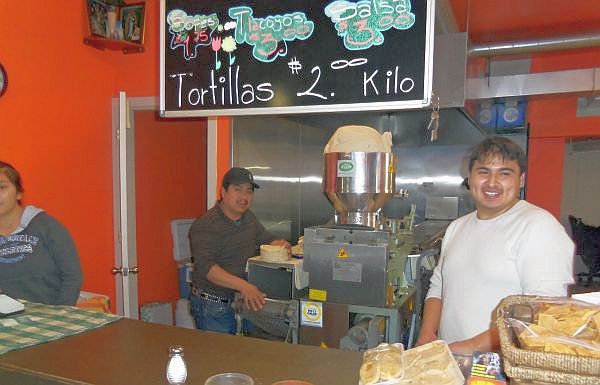Mexico City, Mexico - While Mexico might be keeping the United States at arms length, keeping the DEA and other law enforcement agencies out of Mexico’s war on drugs, US businesses are moving in, and this is hurting Mexico more than it might realize.
The Americanization of Mexico is coming via Wal-mart and other shopping outlets and restaurants. Mom and pop stores and restaurants, which were a tradition in Mexico, are quickly giving way to large conglomerates.
A couple of decades ago it was normal to see a panadero riding his bike with a large round basket of bolillos on his head as he headed to deliver bread. Every other block seemed to have a tortilleria where the smell of fresh tortillas and the squeak of the conveyor belt of the tortilla machine filled the entire block. People lined up to buy a kilo or two of the fresh tortillas and chatted with neighbors and friends.
 |
And it was the same with the panaderías where the smell of fresh baked bread invited you into the store where you were greeted by delicious sweet rolls like elephant ears and conchas displayed in racks.
But all this is going away as large grocery stores like Wal-mart and Aurrera incorporate panaderias and tortillerias into their growing numbers of stores, luring customers for one-stop shopping.
Mexico is Losing its Bakeries
Last month, Leopoldo Gonzalez, vice-president of the National Chamber of Baking Industries of Mexico, or Canainpa, said the small bakeries and tortilla factories in working-class neighborhoods are in danger of becoming extinct due to the influx of the large chain grocery stores like Wal-mart. According to his report is the fact that 50 percent of panaderias and tortillerias have disappeared in the last ten years.
In the 1980's and 1990's when Wal-mart expanded, opening mega stores on the outskirts of towns in the US, many small businesses, especially in the downtown areas, had to shut down. Downtown business districts became ghost towns.
Wal-mart and other mega-stores have the practice of forcing food distributors to sell their products to them at lower prices, making it difficult for small businesses to compete with Wal-mart’s prices.
While Mexico struggles to maintain its sovereignty and independence after NAFTA and the Merida Initiative where both countries agreed on cooperation in fighting drug trafficking, US businesses like Wal-mart, and Mexican businesses like Tiendas Aurrerá and Soriana, are eroding part of Mexico’s heritage with their expansion into working class neighborhoods where small and medium businesses once thrived. According to Gonzalez, wherever one of these stores opens, they destroy sources of employment and reduce local commerce by close to fifty percent.
Mexico’s politicians and its entities in charge of commerce and fair trade practices need to realize that Mexico entering a stage similar to the one that killed the downtown business districts in small towns all over the US decades earlier. If nothing is done, the smell of fresh bread and tortillas will be nowhere to be found in Mexico and a sense of community will be lost. All that will be left will be Wal-mart.


